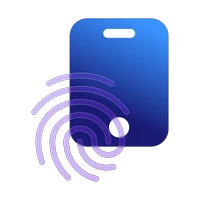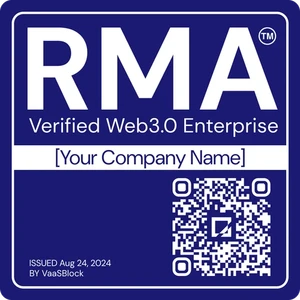Organization Name – Trustblock
Category –  Security & Identity
Security & Identity
About
Trustblock is a Web3 platform dedicated to improving security by offering tools, data, and infrastructure for smart contract auditing. It serves as a “security hub,” connecting auditors, blockchai…n projects, and users while ensuring security data is transparent, accessible, and actionable. By focusing on trust and transparency, Trustblock aims to reduce risks in decentralized finance (DeFi), non-fungible tokens (NFTs), and other Web3 applications.
The platform hosts a repository of verifiable smart contract audits, stored on the InterPlanetary File System (IPFS) for immutability and resistance to tampering. This system helps prevent scams and builds trust within the blockchain ecosystem. Auditors can showcase their work through published metrics, allowing potential clients to objectively evaluate their performance. Trustblock also offers widgets for auditors to display their metrics on their own platforms, enhancing visibility and reputation.
For developers, Trustblock provides APIs and security labels, allowing integration of real-time security data into decentralized applications (dApps). These features enhance user confidence by clearly indicating whether protocols or smart contracts are audited and secure. Additionally, the platform monitors audited smart contracts for critical issues post-deployment, flagging vulnerabilities as they arise and ensuring ongoing relevance of security assessments.
Although currently operating under centralized governance, Trustblock plans to evolve into a decentralized system. Auditors, developers, and end-users all benefit from the platform’s features, which include free access for auditors, composable security for developers, and user-friendly security indicators for blockchain participants.
Trustblock positions itself as a vital link between trust and decentralization, striving to address security challenges in Web3. While the platform claims to secure billions of dollars across numerous audits, independent verification of these claims remains limited. Users are encouraged to critically assess its transparency and effectiveness before engaging with its services.
Core Offerings and Features
1. Transparent and Verifiable Audits
Trustblock claims to provide a repository for verified auditing firms to publish their smart contract audits. These audits are stored on IPFS (InterPlanetary File System), ensuring they are transparent, immutable, and resistant to tampering. This approach aims to prevent scams and establish trust in the Web3 community
2. Metrics for Auditors
The platform calculates performance metrics for auditing firms based on their published audits. These metrics help potential clients evaluate auditors objectively, fostering a competitive and transparent environment for Web3 security providers. Auditors can also showcase their performance via widgets on their own websites
3. API and Security Labels for Integrators
For blockchain projects and developers, Trustblock offers APIs and security labels that integrate audit data directly into decentralized applications (dApps). These tools aim to enhance user interfaces by providing real-time visual indicators of security statuses, such as whether a smart contract or protocol is audited and safe to use
4. Critical State Monitoring
The platform provides functionality for monitoring the state of smart contracts post-audit. If critical issues or violations arise, the audit is flagged automatically. This feature ensures audits remain relevant, even as contracts are updated or encounter new vulnerabilities
5. Decentralization Plans
Trustblock aspires to transition into a decentralized system, though it currently operates under centralized governance. The company highlights this strategy as a step toward large-scale decentralization as the platform matures
Benefits for Various Stakeholders
Auditors: They can publish audits seamlessly, build their reputation, and gain visibility through metrics that showcase their impact in the Web3 ecosystem. The platform is free for auditing firms, lowering entry barriers for participation
.
Developers and Integrators: By accessing Trustblock’s data, developers can enhance their products with composable security features, such as reactive systems that respond to security threats in real-time
.
End Users: Security labels allow users to navigate the blockchain space with greater confidence, understanding the safety of the protocols they interact with
.
The Bigger Picture
Trustblock positions itself as a bridge between trust and decentralization in blockchain technology. By addressing the need for accessible, reliable security data, the platform contributes to reducing risks in decentralized finance (DeFi), non-fungible tokens (NFTs), and other Web3 applications
However, it’s essential to note that while the company claims to secure billions of dollars across thousands of audits, independent verification of these claims is limited. As such, users should critically evaluate the platform’s effectiveness and transparency Read More
 Security & Identity
Security & Identity










